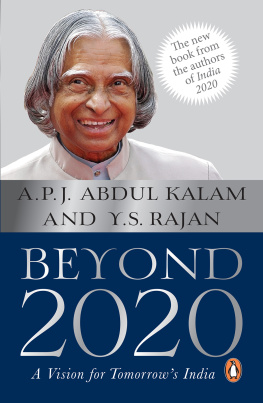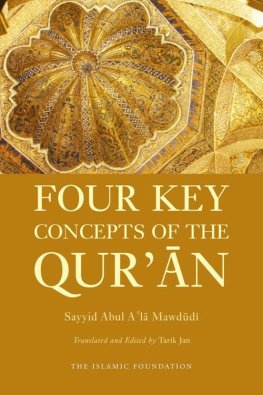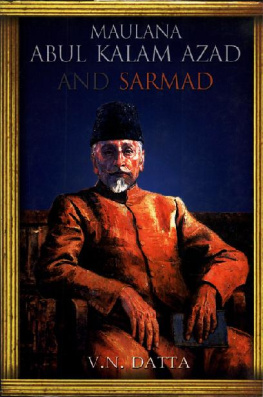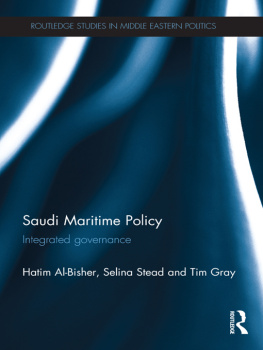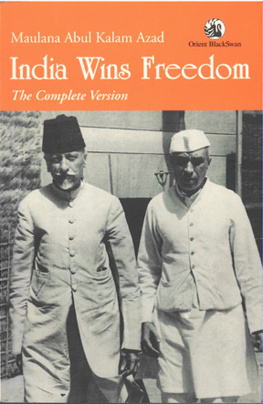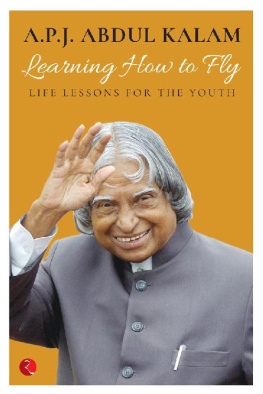
Bangladeshs Maritime Policy
Following successive international legal verdicts, Bangladesh is now an accredited maritime state. Possessing a spacious territorial sea and an extended continental shelf, with a maritime zone almost equalling its land borders, a window of opportunity has opened for the country to realize its developmental aspirations. Yet, it faces numerous challenges, many of which are entwined.
This book is a detailed analysis of Bangladeshs maritime strategy. It charts the countrys maritime legacies, including disputes with both Myanmar and India and analyses the contributions of the leadership in the maritime territorial gains. The author examines Bangladeshs need to consolidate these newly reclaimed gains, whilst exploring the unremitting interest of major global power players in maintaining maritime resource exploitation, navigation and security. Finally, the author demonstrates how the country needs to embrace the notional principles of sustainable development of its ocean economy to utilize its resources and how it has since been coming to grips with the emerging concept of blue economy to enhance its enduring national development.
The first systematic study on Bangladeshs maritime policy and the countrys importance in the emerging geopolitical rivalry in the Indian Ocean, this book will be of interest to academics in the field of South Asian and Indian Ocean politics.
Abul Kalam is a former faculty member of the University of Dhaka, Bangladesh, where he taught Modern History and International Relations. His publications include The Communist Triangle: Foreign Policy Interactions, which won him the Justice Ibrahim Gold Medal, awarded by the University of Dhaka.
Routledge Contemporary South Asia Series
The Rule of Law in Developing Countries
The Case of Bangladesh
Chowdhury Ishrak Ahmed Siddiky
New Perspectives on India and Turkey
Connections and Debates
Edited by Smita Tewari Jassal and Halil Turan
The Judicialization of Politics in Pakistan
A Comparative Study of Judicial Restraint and its Development in India, the US and Pakistan
Waris Husain
Employment, Poverty and Rights in India
Dayabati Roy
Bangladeshs Maritime Policy
Entwining Challenges
Abul Kalam
Health Communication and Sexual Health in India
Interpreting HIV and AIDS messages
Ravindra Kumar Vemula
Contemporary Literature from Northeast India
Deathworlds, Terror and Survival
Amit R. Baishya
For the full list of titles in the series please visit: https://www.routledge.com/Routledge-Contemporary-South-Asia-Series/book-series/RCSA.
Bangladeshs Maritime Policy
Entwining Challenges
Abul Kalam
First published 2019
by Routledge
2 Park Square, Milton Park, Abingdon, Oxon OX14 4RN
and by Routledge
711 Third Avenue, New York, NY 10017
Routledge is an imprint of the Taylor & Francis Group, an informa business
2019 [Abul Kalam]
The right of Abul Kalam to be identified as author of this work has been asserted by him in accordance with sections 77 and 78 of the Copyright, Designs and Patents Act 1988.
All rights reserved. No part of this book may be reprinted or reproduced or utilised in any form or by any electronic, mechanical, or other means, now known or hereafter invented, including photocopying and recording, or in any information storage or retrieval system, without permission in writing from the publishers.
Trademark notice: Product or corporate names may be trademarks or registered trademarks, and are used only for identification and explanation without intent to infringe.
British Library Cataloguing in Publication Data
A catalogue record for this book is available from the British Library
Library of Congress Cataloging in Publication Data
A catalog record has been requested for this book
ISBN: 978-1-138-60762-0 (hbk)
ISBN: 978-0-429-46707-3 (ebk)
To
The Founding Father of Bangladesh
Bangabandhu Sheikh Mujibur Rahman
&
The teeming millions who responded to his call of struggle
for
National Liberation & Independence
Our watery planet, dominated as it is by the oceans, is to a large extent unknown, surveyed and unloved, especially as depth increases. Within those depths, on the seabed, in the water column, in the airspace above and especially in the littoral (where the sea meets the land) are great resource and unquantified value. The seascapes are vast and unrelenting, portraying a harsh persistent, oscillating, ever changing environment that is at once a place of tranquil beauty and, a few minutes later, the source of vast energy masses that bring huge forces of wind and water to our shores. Such extreme remoteness and vastness are phenomena that few of our terrestrial, increasingly urbanized humanity can even begin to appreciate. Thats not the fault of people; its symptomatic of the scale and scope of our seas and oceans, matched by our lack of data, information and knowledge of them. Hence, we do not know what lives at depth or lies on or below the seabed; we generalize and surmise on beguilingly coloured maps but we dont know. Yet, since humanity began to spread across the globe, the seas and oceans have been human thoroughfares and sources of movement and exploration, of industry and leisure, of protein and energy, and much, much more. Pity the nation without a coastline because they are denied a share of the worlds seas and oceans.
Nations with coastlines have maritime histories, territorial waters, economic zones, marine resources and environments, maritime industries and communities. Those seas have value which brings with it responsibility; maritime nations need to legislate, monitor and govern their waters, to license and maintain their resources and to ensure that the marine environment is surveyed, protected and exploited in a sensitive fashion. Few do this well; they have yet to properly survey and understand their marine domains, and economic exploitation of national waters is largely ineffectively regulated. Further afield on the high seas, the harsh reality is that its essentially a free for all where our global commons are unregulated, exploited and polluted in equal measure. This is not really the fault of maritime nation governments, more the unfortunate coincidence of the lack of technical ability to understand the seas and oceans, and (until recent years) a naive belief that the oceans were indestructible. With modern technology, notably those earth observation sensors residing on increasingly ubiquitous satellites, this is all changing. Humanity is rapidly moving from centuries of sea blindness to sea vision and its happening in our lifetime.
Here, therefore, lies the great worth of the Bangladeshs Maritime Policy. Abul Kalams rich excursion through the entwining challenges of Bangladeshs maritime history and security, resources, economic and strategic opportunities, and nascent blue economy is a tour de force; an essential maritime manual for a modern maritime nation simultaneously confronted with great prospects and great challenges. Bangladeshs seas are not overly large, but they are very complex, ever changing and very environmentally sensitive; ashore the nation is confronted with the mind-focusing priorities of a large, expanding and demanding population. While Kalam convincingly explains that Bangladeshs blue economy, underpinned by a long, illustrious maritime legacy is key to the nations future, his text is laced with realism and thoughtful guidance. This volume will be a boon for Bangladeshi politicians as they turn an eye towards the potential of their marine resources and blue economy. It is a comprehensive, impressive work; a precedent that many maritime nations would do well to emulate.




